Germany in the Middle of Nowhere #club100
I bet you didn't know, but Germany is everywhere. It can even be in the wilds of Washington State.
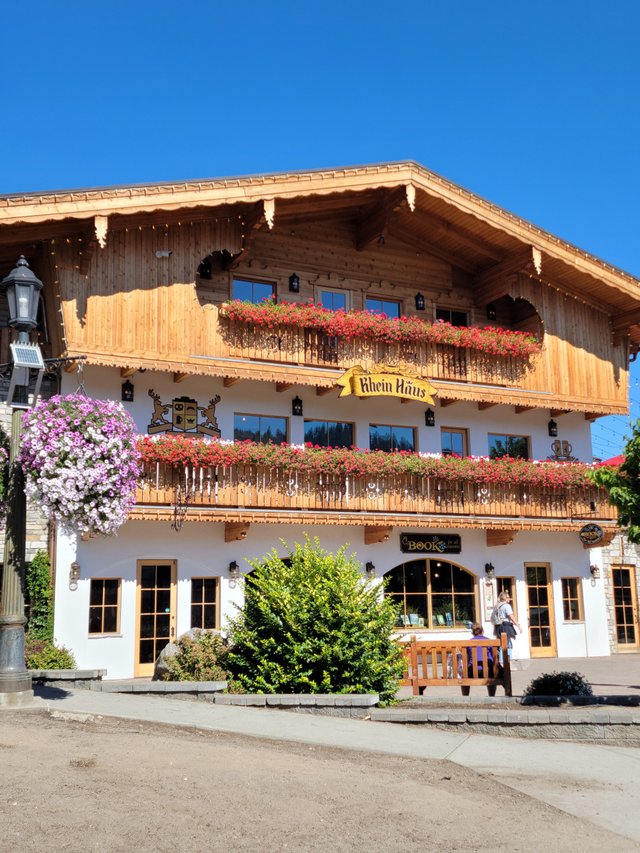
Deep in the Cascade Mountains of Washington, the Bavarian village known as Leavenworth sprang up from the soil. OK that is not true. Turning the town of Leavenworth into a Bavarian village was an intentional idea meant to draw tourists to the region. You see, Leavenworth was once a bustling frontier city engaged in heavy commerce due to logging, the fur trade, and the railroad. But that all changed and once these industries died, the town was in danger of becoming a ghost town.
And take it from me. Its a long drive through Sasquatch country just to get there. The residents desperately needed to build something to lure new business.
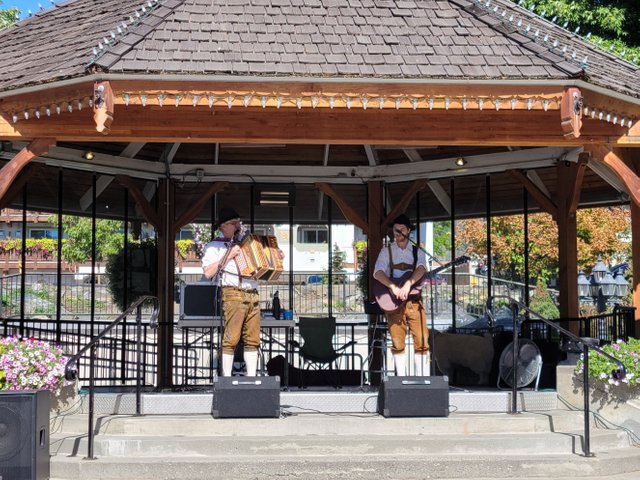
They bet the farm on lederhosen and and an accordion, and it worked. Leavenworth now draws over a million tourists per year--all of them imagining what it would be like to visit a real Bavarian town in the German Alps.
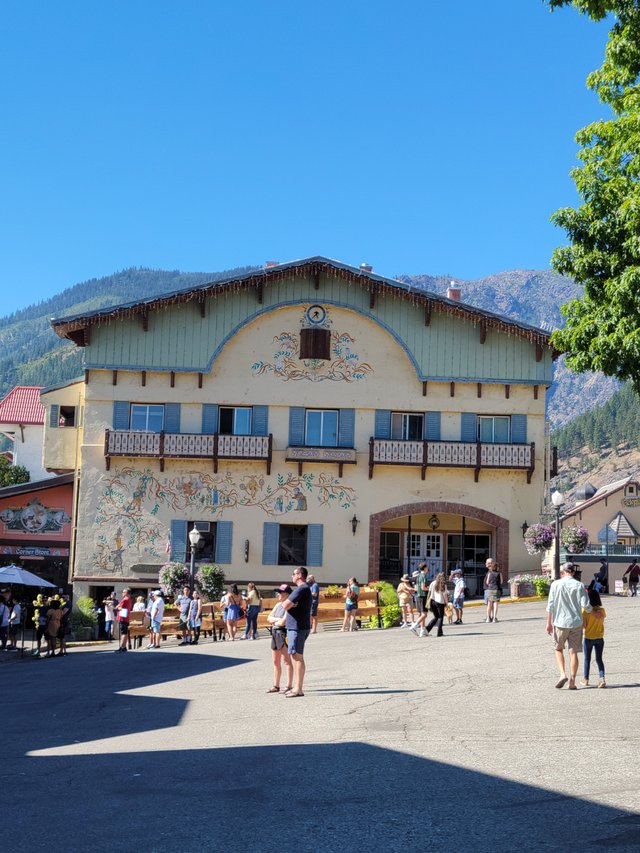
Is Leavenworth truly a reasonable representation of life in the German Alps? Probably not, but who knows. I have never seen the real thing. Still, visiting this town is fun, especially if you enjoy beer and sausages.
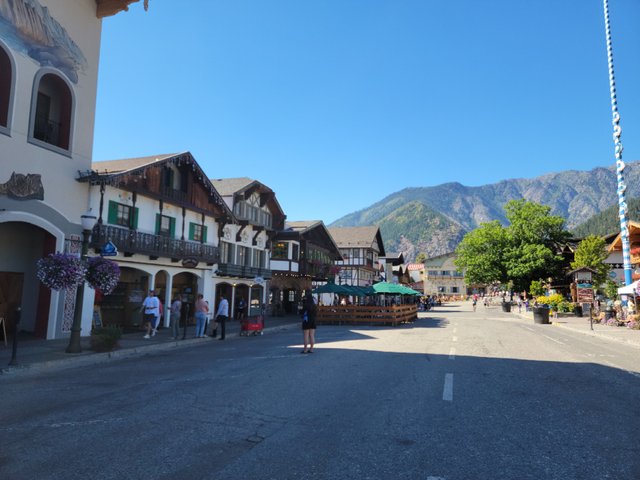
There are plenty of restaurants and beer halls, and you can enjoy many types of German foods. There is also a wide variety of gift shops with unique treasures, although I was a bit disappointed in the lack of gnome selection. Even if you have no money to spend, there is opportunity to simply enjoy the sights.
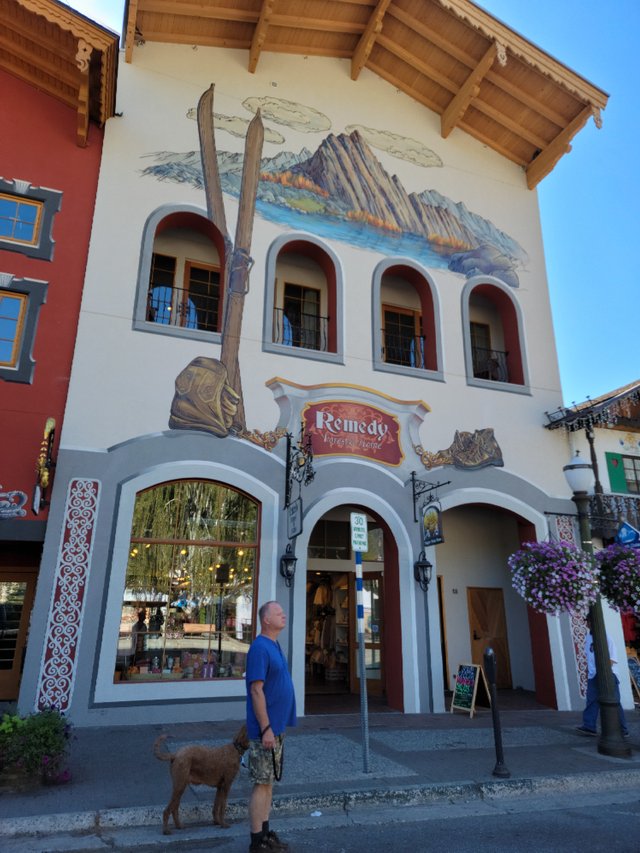
Not only is there interesting carpentry to look at, but nearly every building is covered with colourful murals.
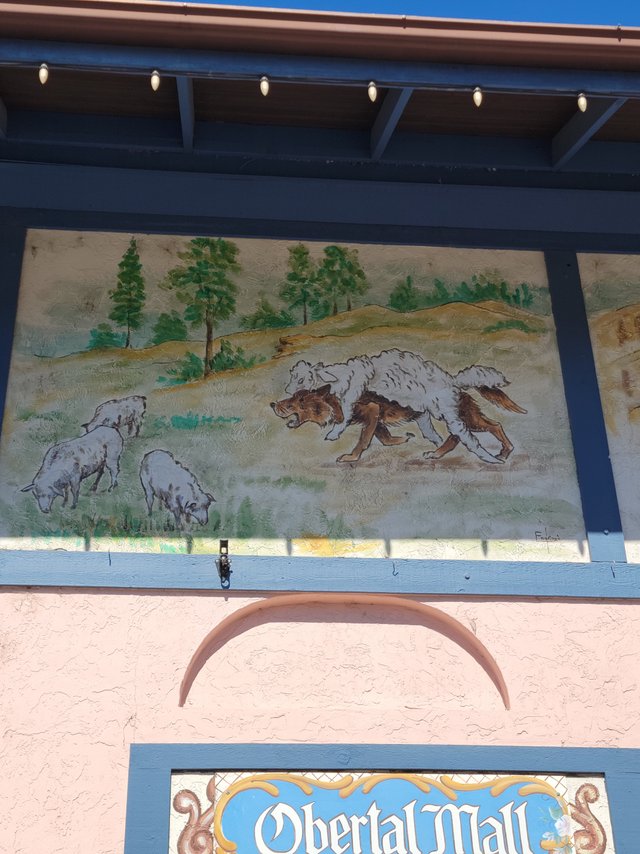
If communing with nature is more your thing, there is a wonderful river just a short walk from downtown.
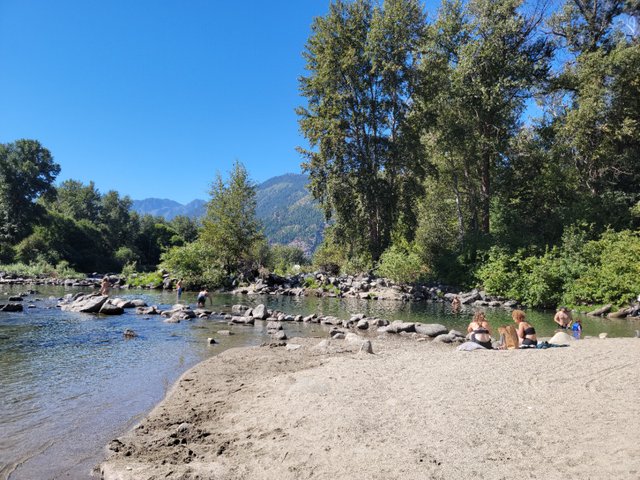
The only problem with Leavenworth is that it is so expensive to stay there. We paid nearly $200 US just for a camping spot for one night. Plus, we were lucky to get that spot as it was so crowded everywhere. I do not know how much they were charging for hotel rooms, but I expect that it would be a similar amount and more.
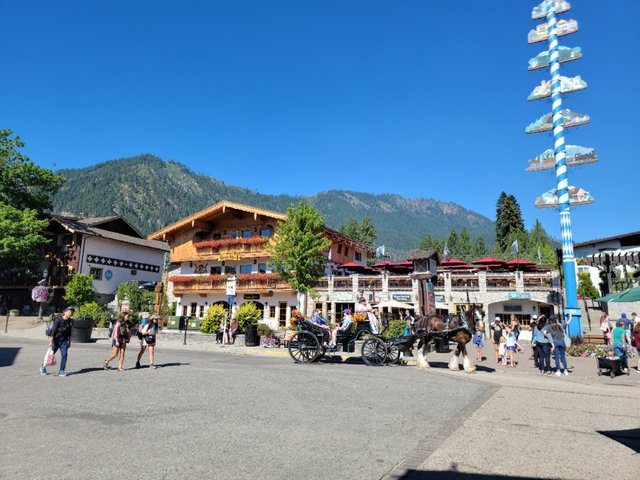
So what do you think? Does Leavenworth give you the feeling that you could be in Germany?
This is a 100% #steemexclusive POWER UP! post for #club100
Little Germany on the outskirts of America near Seattle very interesting city. $200 for a night in camping is very expensive but sometimes worth it.
Sometimes it is. In this case the only benefit was the proximity to the tourist attractions.
There is a similar town in Michigan called Frankenmuth.
Interesting place to visit, but at $200 a night to Camp, it would have to be a drive through for me, LOL!
👍😁🤕😳💲
I'll say more! In the small town where I live, which is located between the Urals and Moscow, Germans live. However, at the end of the last century and at the beginning of this, many of my German friends went to live in Germany. They are mostly descendants of German prisoners of war who were here after World War II.
In Soviet times, they did not advertise their origin.
I assume that they wouldn't advertise. It was embarrassing to be a German after the war ended--and sadly--rightly so. Plus, Russia sustained a great loss of life and made many sacrifices to repel Hitler's invasion. I am curious why the prisoners of war were not sent back to Germany after the war ended?
They were working. In our city they built houses, water supply. In the 90s, I read in a local newspaper the story of a man who was a child during the war and remembers how the first echelon of prisoners of war was brought. Maybe it's just a man's invention, maybe he dreamed something wrong in his childhood. But he told a terrible story. The time was hungry and someone decided not to open the wagons with prisoners of war for several days. They were dying of hunger and wounds there.
In 1947, the USSR, the USA and the UK decided to repatriate German prisoners of war, and they began to be sent to Germany at their place of residence in the GDR and FRG. This process lasted until 1950, while prisoners convicted of war crimes were not subject to return.
Oh if they were returning by 1947, then they were not kept to long. It took many years to get everyone home or wherever they were going.
I can believe that the story about starving the POWs is true. People do terrible things during war.
My grandpa came back in 1948. A psychological broken man until his soon death.
Most men from this generation never told one word about their experience, they just wanted to forget. But there are some who start talking when they are very old - I heard a few of them personally.
So you can be almost sure that the story is true. There was much more and unbelievable cruelty.
My husband's grandfather died at the Battle of Stalingrad, and his father became a refugee. He was 13 years old on the day that Auschwitz was liberated. His mother and sister were forced to flee. He lived into his old age, but he was plagued with health problems that often impact child survivors of war.
I am grateful that I live in a nation where we have not seen the effects of war firsthand. We can only be hopeful that the world leaders will prevent us from descending into global war.
Hope and pray...
I don’t want to take you the illusion but…
But very nice post… ;-)
Best regards from Germany,
Chriddi
Hello to you in Germany!
You are, of course, correct that this is no more than an illusion of the imagination. The imagination comes from the children of German immigrants who truly know nothing of the "old country" except what parents and grandparents have told them. The other interesting thing is that when people immigrate, their experience of the "old country" becomes locked in time. The old countries progress like everywhere else, but in the mind of the immigrant/ emigrant, everything is imagined as they left it.
Curated by : @petface